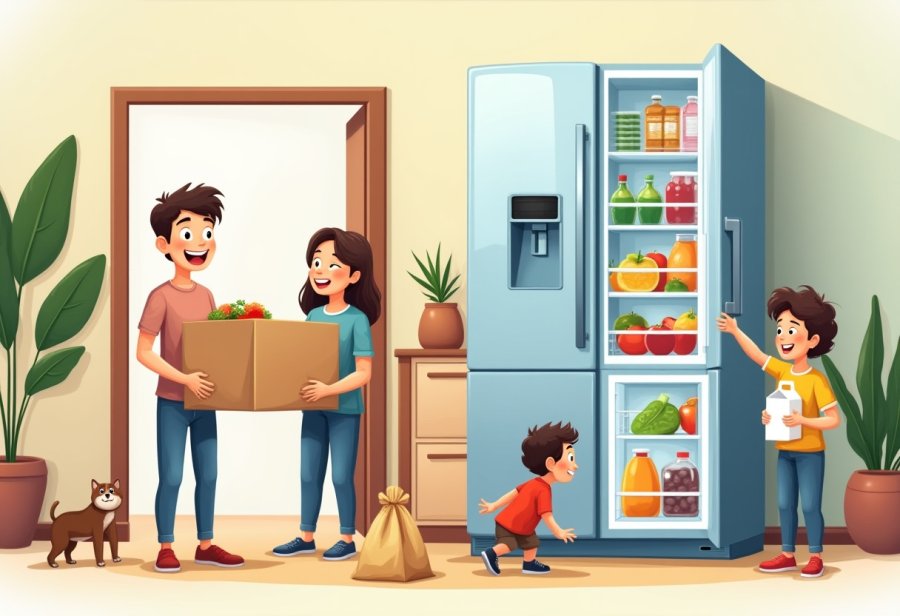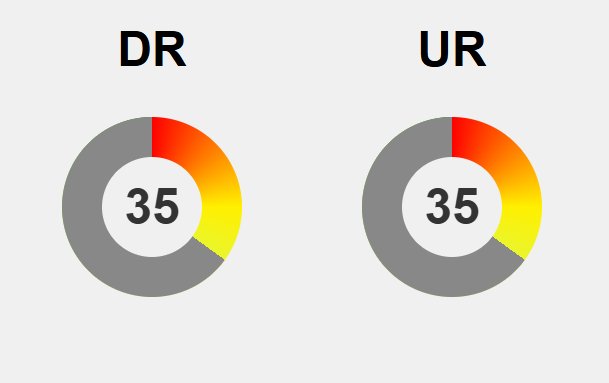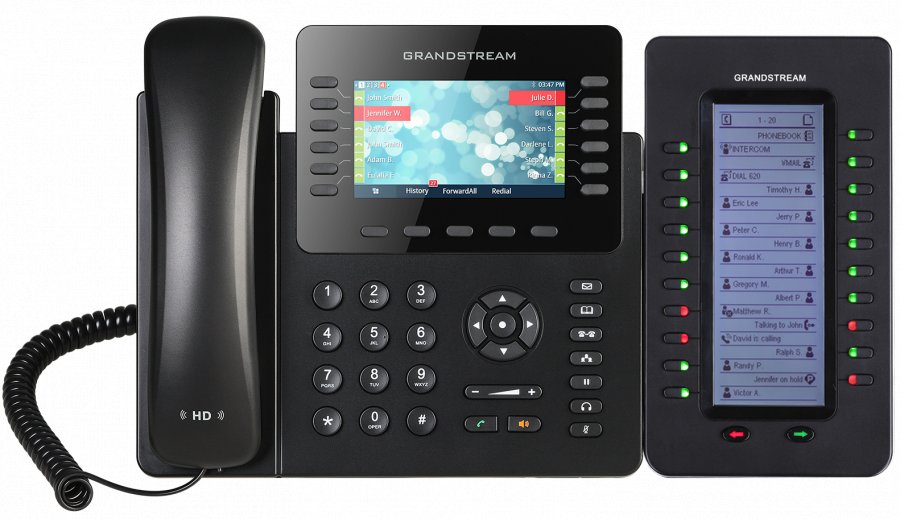
Modern appliances are revolutionizing home life, blending sleek design with cutting-edge technology to enhance comfort and efficiency. But are these shiny upgrades truly transforming our daily routines or just offering superficial appeal? From smart refrigerators that monitor food freshness to quiet, energy-efficient washers, today’s devices support smarter, more sustainable living. They automate chores, reduce utility costs, and seamlessly integrate into our connected homes—yet, they also pose challenges like high upfront costs, complexity, and reliance on stable internet. As appliances become more intelligent and adaptive, they promise homes that learn our routines and anticipate our needs. Will these innovations make daily life easier and greener, or will the barriers and risks outweigh the benefits? This evolving landscape invites us to consider whether our homes are simply becoming smarter or truly more livable, raising questions about the future of comfort, sustainability, and technological dependence.
Experience Unmatched Home Appliance Value in Greater Toronto Area
Canadian Appliance Source (CAS) is your premier destination for top brand name kitchen and home appliances in the Greater Toronto Area. We proudly offer a wide selection of trusted brands such as Whirlpool, Bosch, KitchenAid, Samsung, LG, Electrolux, GE, Amana, Frigidaire, JennAir, Maytag, Thermador, and more—all at unbeatable low prices. Our dedicated team provides personalized service with the convenience of an side by side shopping experience, plus instant chat support to assist you seamlessly. Take advantage of our exclusive incentive programs from leading brands and upgrade your home today. For inquiries, contact Rebecca at 1(877)374-3439 ext. 461 or email Rebecca.Chan@CanadianApartment.ca.

Modern Appliances Transform Home Life with Seamless Convenience
Modern appliances have become essential players in our daily home routines, quietly transforming how we live and work within our spaces. They do more than just perform chores; they actively shape our environment, making everyday tasks smoother and more manageable. From refrigerators that keep food fresh longer to washing machines that operate quietly and efficiently, these devices are designed to boost comfort and convenience seamlessly into our lives.
The evolution of household appliances reflects a continuous push toward smarter, more connected living. Today’s models come equipped with digital controls, remote monitoring, and automation features that help streamline routines and reduce stress. For instance, you can start your laundry from your phone or preheat your oven remotely, turning routine chores into effortless activities. This integration of technology frees up time and mental space, allowing you to focus on what truly matters.
Beyond convenience, modern appliances also promote sustainability. Energy-efficient designs, smart sensors, and eco-friendly materials help households lower utility bills while minimizing environmental impact. Refrigerators that adjust cooling based on internal conditions or washing machines that optimize water use exemplify how innovation supports greener living without sacrificing performance. These advancements make it easier to live sustainably while enjoying the benefits of modern technology.
Choosing the right appliances isn’t just about features; professional guidance plays a key role. Experts help consumers select models tailored to their needs, ensure proper installation, and provide ongoing maintenance. This support maximizes the lifespan and reliability of appliances, preventing disruptions and costly repairs. Investing in quality, well-chosen appliances ultimately enhances your home’s efficiency and comfort over the long term.
Modern appliances are no longer mere upgrades—they’re fundamental to creating smarter, more efficient homes. Their ongoing development continues to push the boundaries of what household technology can achieve, turning homes into dynamic spaces that adapt to our lifestyles. Embracing these innovations means embracing a future where comfort, convenience, and sustainability go hand in hand.
How Modern Appliances Redefine Comfort and Boost Efficiency
Modern appliances have completely transformed how we experience comfort and efficiency at home, turning everyday routines into smooth, effortless processes. Features like precise temperature controls in refrigerators and ovens help keep food fresher longer and cook more evenly, which reduces waste and frustration. Noise reduction technology ensures appliances operate quietly, creating a calmer environment even during busy mornings or late-night laundry sessions. These small but impactful innovations significantly enhance the overall home atmosphere, making daily life more peaceful and enjoyable.
Ease of use has become central to modern appliance design. Many models now feature intuitive touchscreens, smart controls, and voice command capabilities that simplify operation. Whether adjusting settings from your phone or speaking commands, managing appliances has never been easier. This user-friendly approach reduces the hassle of household chores, saving time and lowering stress. The seamless integration of technology into everyday routines elevates the home experience from mundane to manageable, encouraging a more relaxed lifestyle.
Energy efficiency is a key driver behind recent innovations. Advanced technologies like inverter motors, smart sensors, and eco-friendly materials help appliances optimize water and electricity consumption without sacrificing performance. Washing machines now automatically adjust water levels based on load size, while refrigerators monitor internal temperatures to minimize power use. These features lower utility bills and support sustainability efforts, demonstrating how technological progress can benefit both households and the environment.
Smart connectivity further enhances household management. Wi-Fi and Bluetooth-enabled appliances allow remote control and monitoring via apps, giving us the ability to start laundry before leaving work or check fridge contents while shopping. Voice assistants enable quick commands, making routines more flexible and less time-consuming. This level of automation fosters a more mindful use of energy and resources, transforming household management into an intuitive, less burdensome task.
The reliability and durability of high-quality appliances underpin these benefits. Designed to withstand frequent use, these devices deliver consistent performance over years, providing peace of mind. When minor issues occur, many providers offer quick repairs or remote troubleshooting, minimizing household disruptions. This dependable performance ensures daily routines stay on track, keeping homes comfortable and functioning smoothly without constant worry about malfunctions.
All these technological advances come together to redefine what comfort and efficiency mean in the modern home. Appliances now do more than just perform tasks—they actively support a lifestyle centered on convenience, sustainability, and peace of mind. As they continue to evolve, homes are becoming smarter, quieter, and more responsive to our needs, making everyday living easier and more enjoyable.

Overcoming Challenges: Costs, Complexity, and Technological Limits
Modern appliances, despite their many benefits, come with notable challenges that can influence how we experience their advantages. One of the biggest hurdles is the higher initial cost. Advanced features, energy-efficient technologies, and smart capabilities often come with a price tag that can be steep for many households. While these appliances promise long-term savings through lower utility bills, the upfront investment can be a barrier, especially for those on tighter budgets or making multiple upgrades at once.
Another significant issue is the growing complexity of modern devices. Many appliances now incorporate digital interfaces, automation, and smart features that require a learning curve. For users less comfortable with technology, this can turn routine setup or troubleshooting into frustrating tasks. Software glitches, connectivity issues, or unfamiliar controls may lead to dependence on professional help, adding both inconvenience and expense.
Reliance on a stable internet connection is a limiting factor for many connected appliances. When Wi-Fi drops or becomes unreliable, the functionality of these devices can be severely impacted, sometimes rendering them unusable until connectivity is restored. Moreover, this dependence raises cybersecurity concerns. Hackers gaining access to smart appliances could compromise privacy or cause malfunctions, making security an important consideration for homeowners investing in connected home tech.
The rapid pace of technological advancements also brings a cycle of frequent upgrades. As new models with advanced features hit the market, older appliances quickly feel outdated. This can push consumers toward costly replacements or repairs, diminishing the long-term value of their initial investments and contributing to electronic waste. Heavy usage may also accelerate wear and tear, leading to breakdowns that disrupt routines and incur costly repairs, underscoring that even high-quality appliances aren’t immune to issues over time.
From an environmental perspective, modern appliances are a mixed bag. While designed to be energy-efficient, their manufacturing processes can be resource-intensive. Shorter lifespans and the quick turnover of models contribute to electronic waste and environmental concerns. This raises questions about the true sustainability of some of these innovations, especially when considering the environmental impact of production and disposal. Balancing technological progress with eco-responsibility remains a key challenge as these devices become more integrated into our homes.
To navigate these challenges effectively, consumers are encouraged to research and choose appliances that offer user-friendly interfaces and reliable support. Additionally, staying informed about the latest advancements can help in making cost-effective decisions. For more insights on selecting durable and efficient appliances, you can explore this comprehensive guide on modern appliances.
Integrating Modern Appliances into Daily Routines for Easier Living
Modern appliances have seamlessly woven into our daily routines, transforming the way we manage household chores and personal schedules. Smart ovens, for example, enable us to preheat or adjust cooking settings remotely, so dinner is ready right when we walk in the door. Connected washing machines automatically select optimal water and cycle settings based on load size, saving both time and resources. These small yet impactful features help streamline daily tasks, turning what used to be routine drudgery into effortless activities.
Refrigerators now do much more than keep food cold; they act as organizational hubs that help us stay on top of groceries and meal planning. Internal cameras, expiration alerts, and digital shopping lists make it easier to track what’s in stock and prevent food waste. Checking your fridge contents from your phone before heading to the store not only saves time but also reduces unnecessary trips, supporting a more sustainable lifestyle. These innovations empower us to make smarter choices about food and resources with minimal effort.
Quiet operation is another significant benefit modern appliances bring to home life. Dishwashers, laundry machines, and even refrigerators now operate with minimal noise, allowing household routines to occur without disturbing the peace. Off-peak scheduling for dishwashers or laundry helps conserve energy and avoid peak-time noise, creating a calmer environment during busy mornings or late evenings. This quiet efficiency enhances the overall comfort of a home, making daily routines feel less intrusive and more integrated into a peaceful living space.
Automation and remote control further elevate the convenience factor. With voice commands or smartphone apps, household tasks become as simple as speaking a command or tapping a screen. You can start laundry, adjust oven temperatures, or check appliance status from anywhere, giving you greater flexibility and control over your household management. This level of automation reduces mental load and helps maintain a sense of order amid busy schedules, making home life more manageable and less stressful.
Reliable, high-quality appliances also support long-term lifestyle improvements by reducing disruptions and maintenance worries. When minor issues do arise, many providers offer quick repairs or remote diagnostics that keep routines on track. This dependable performance ensures that household operations remain smooth and consistent, allowing you to focus on what matters most. In this way, modern appliances do more than perform tasks—they actively shape a more efficient, comfortable, and sustainable way of living.

Future of Home Technology: Smarter, Greener, and More Connected Homes
Modern appliances have evolved beyond simple tools for household chores; they are reshaping how we live, work, and connect within our homes. Their role goes far beyond appearances, actively supporting daily routines with smarter, more sustainable features that enhance comfort and efficiency. These advancements have transformed homes into responsive environments where convenience and eco-friendliness go hand in hand, making life more manageable and enjoyable.
Looking ahead, innovations like artificial intelligence, robotics, and enhanced connectivity promise to redefine what’s possible. Imagine refrigerators that automatically restock themselves or washing machines that learn your routines to optimize water and energy use—all without you lifting a finger. Such developments will make homes more personalized, intuitive, and seamlessly integrated into our lifestyles, blurring the lines between appliances and intelligent systems.
While some may see these upgrades as superficial, their impact is undeniable. They save time, lower utility bills, and reduce environmental footprints, creating a more sustainable way of living. Remote controls, automation, and real-time monitoring will become standard, making home management more effortless and less stressful. These innovations are not just incremental; they are shaping a future where our living spaces adapt to us, rather than the other way around.
Of course, challenges remain. High costs, technological complexity, and reliance on stable internet connections can be barriers to widespread adoption. Cybersecurity concerns and the environmental impact of manufacturing and disposal also require attention. Recognizing these limitations helps us approach new technologies thoughtfully, balancing convenience with responsibility and ensuring that progress benefits everyone.
As appliances become more intelligent and connected, they will continue to support healthier, more comfortable, and eco-conscious lifestyles. Homes will evolve into dynamic spaces that anticipate our needs, adapt to our habits, and help us live more sustainably. This ongoing journey from basic tools to sophisticated systems offers a promising glimpse into a future where technology actively enhances our well-being and preserves our planet.
In embracing these advancements, we’re not just upgrading our homes—we’re redefining what it means to live comfortably and efficiently. The future holds exciting possibilities for smarter homes that are more responsive, more eco-friendly, and more aligned with our daily lives. By staying mindful of the challenges and leveraging the potential of new appliances, we can create living spaces that truly serve us, today and well into the future.




